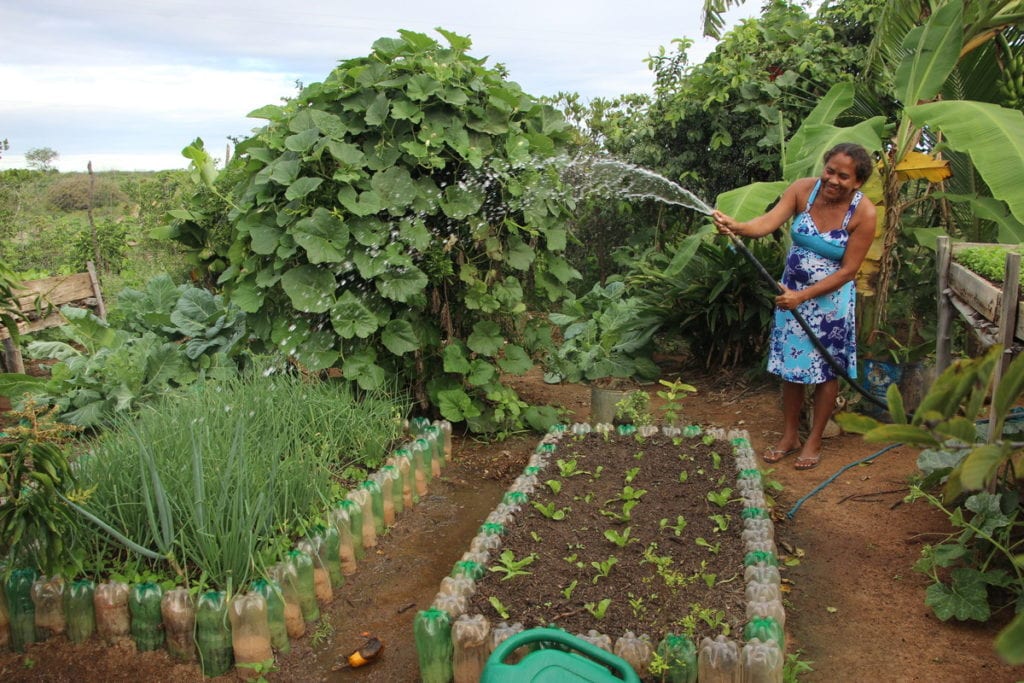Around the world, more and more people are experiencing hunger. Policies that are in place to address food security are clearly going in the wrong direction.
These unjust realities were at the center of discussions I had and observed during my long marathon at the annual meeting of the United Nations Committee on World Food Security (CFS). José Graziano da Silva, Director General of the UN Food and Agriculture Organization, criticized the current global food system for overproducing at the expense of quality. Indeed, food experts have tended to only look at production processes and not address the policies and institutional frameworks holding up our food systems. This is problematic since the policies that hold up food systems ultimately impact workers who are producing and selling food – and who are often experiencing poverty and exclusion from policy decisions.
That’s why we at ActionAid are committed to elevating voices from social movements. We were one of the founders of a space within the CFS, called the Civil Society and Indigenous Peoples Mechanism Forum, that gathers hundreds of farmers, indigenous peoples, agricultural workers, and allies from nongovernmental organizations, like me. Together we craft the messages we want to bring to the larger CFS body to challenge and add to existing discourses around food.
In response to Mr. Graziano’s critiques, we called for a fundamental change in how food is produced, in order to address increasing hunger and the harmful impacts of climate change.
Here are a few more highlights from the week:
- The first day of CFS coincided with the International Day of Rural Women. It was inspiring to organize the side event with rural women. We started dancing a Mystica, a ceremony showing solidarity among women of different countries, religions, cultures, and age, and singing food-inspired songs. We stated that after a decade of celebrating International Rural Women’s Day, rural women are still denied their rights, and members of the ActionAid delegation spoke about the importance of recognizing the multiple identities and unique struggles of rural women.
- The following day focused on the celebration of World Food Day.
"We need urgency and deeper commitment to taking action on global hunger. More than 821 million people are not getting enough food to eat – does that figure have to reach one billion again before our governments act?" @a_campolina speaks at world #foodsecurity plenary @UN_CFS pic.twitter.com/gnPNfQ1XVC
— ActionAid (@ActionAid) October 16, 2018
- Two flagship reports on food and hunger were presented. I have already written about the SOFI report, and the SOFA report was launched for the first time! It looks at rural migration and what it means for policy-making. The report highlights that globally, the number of people migrating to different countries is significantly smaller than the number of people migrating within their country. More than 1 billion people living in developing countries have moved internally. This sends a strong message that migration is a part of economic, social and human development and a means of reducing inequality both within and between countries.
- Another relevant moment was the session dedicated to the status of the implementation of the right to food. The Civil Society and Indigenous Peoples Mechanism Forum presented an autonomous report whose findings demonstrate that the primacy of private sector interests is in fact perpetuating world hunger. There still remains a significant gap between policy and laws and the realization of the right to food, as evidenced by the increasing rates of global hunger and malnutrition.
- I also attended an event organized by the Global Agriculture and Food Security Program around the importance of building partnerships that are inclusive of local farmers. The organization ROPPA, representing small-scale farmers from West Africa, emphasized how major risks in agriculture are borne by farmers, and governments, banks and other institutions have to collaborate and share these risks with them.
Because this year’s CFS didn’t have any policy outcomes to negotiate or any decisions to take, the energy within the room felt a bit low. “Political will” was largely absent in the room. Governments again showed low commitment to concrete actions beyond official statements and admissions that we’ll never end hunger and achieve food security and nutrition without a clear policy change. Nonetheless the CFS is established as the foremost platform on food security and nutrition, with strong convening power for governments, representatives from the private sector (a 160-member delegation!), international agencies and civil society organizations.
We continue to support the CFS and strengthen its role in building policy coherence and coordination among governments. We are ready to engage in the upcoming discussions around agroecology, one of the most controversial issues at the moment. And we stand with farmers, indigenous peoples and rural communities as they carry forward the struggle for the right to food.

